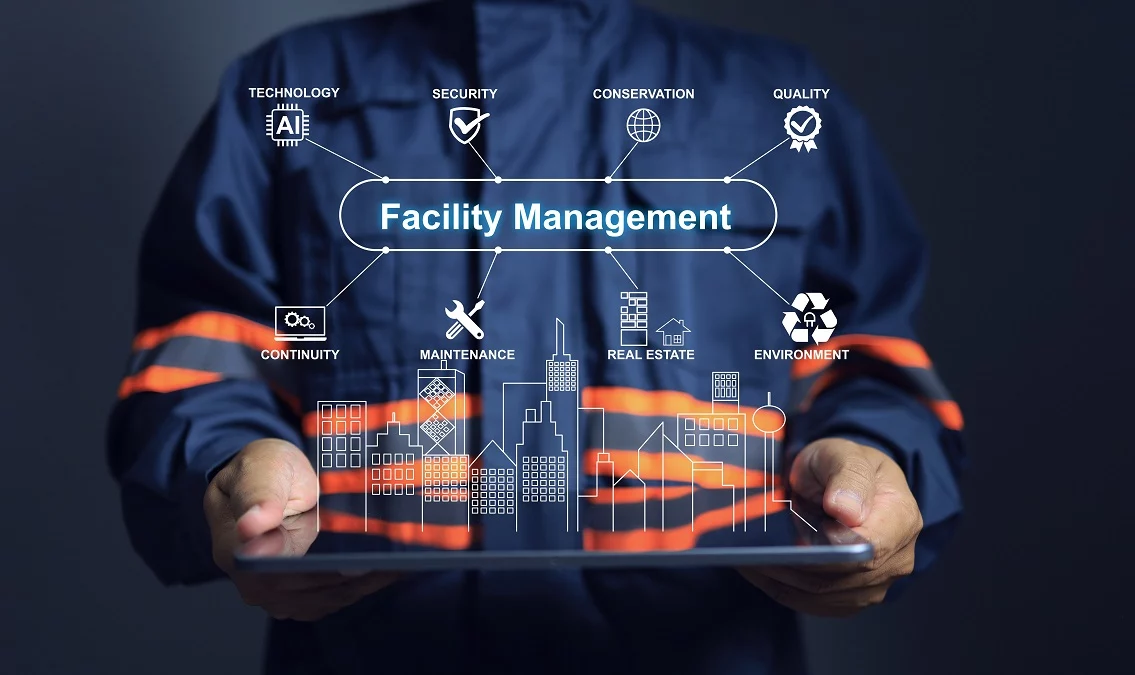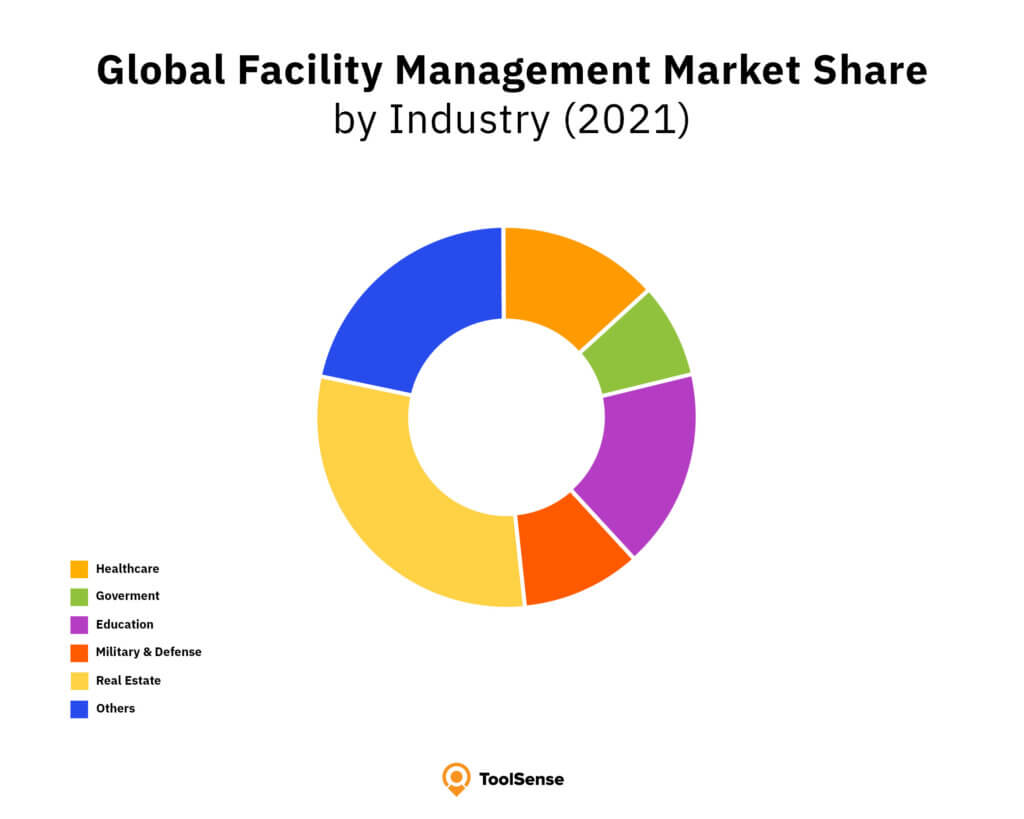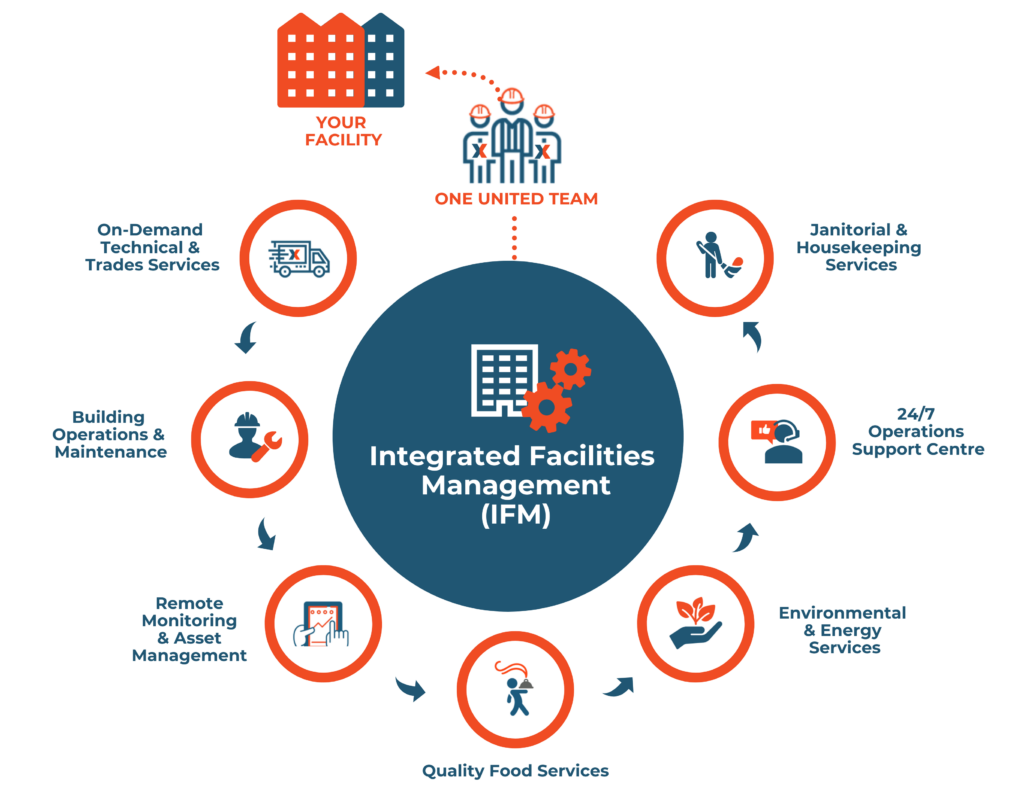Comprehensive Guide to Facility Management for Businesses
Comprehensive Guide to Facility Management for Businesses
Blog Article
Secret Fads Forming the Future of Facility Administration in 2024
As we look ahead to 2024, the landscape of facility monitoring is positioned for considerable change, driven by several key patterns. The combination of smart structure innovations and a shift in the direction of data-driven decision-making pledge to boost operational performance while focusing on sustainability in method.
Smart Building Technologies

Smart structure modern technologies incorporate a wide range of systems, including intelligent lighting, a/c controls, and safety and security systems. By integrating these systems, facility supervisors can monitor and adjust parameters in real-time, resulting in considerable reductions in energy waste and operational costs. As an example, wise sensors can find tenancy degrees and change illumination and temperature appropriately, making sure that energy is only utilized when needed.
Moreover, these modern technologies facilitate boosted information collection, enabling organizations to track use patterns and determine opportunities for further renovations. The execution of wise building modern technologies not only contributes to sustainability objectives however likewise develops much healthier workplace that can improve worker performance and satisfaction.
As we relocate right into 2024, the fostering of smart structure innovations will likely accelerate, showing a broader change towards even more intelligent, receptive, and sustainable center management techniques.
Data-Driven Decision Making
Significantly, organizations are leveraging data-driven choice making to enhance center management techniques. By utilizing information analytics, facility supervisors can acquire actionable understandings that considerably boost operational performance and source allocation. The combination of sophisticated modern technologies, such as IoT sensors and real-time monitoring systems, enables the collection of substantial amounts of information on building performance, occupancy prices, and energy intake.
This wide range of details allows facility supervisors to determine patterns, predict maintenance needs, and proactively address problems before they intensify. For example, predictive analytics can anticipate equipment failings, lowering downtime and repair work expenses. Additionally, data visualization devices promote far better communication amongst stakeholders, ensuring that educated decisions are made collaboratively.
Additionally, data-driven strategies enhance calculated preparation by allowing center supervisors to assess the efficiency of current methods and make educated choices concerning financial investments in innovation or infrastructure. As companies increasingly prioritize operational excellence, data-driven decision making is poised to become a cornerstone of effective center management techniques in 2024 and past. Eventually, the capability to utilize data effectively will empower companies to develop more effective, productive, and resistant facilities.
Sustainability and Green Practices
The focus on data-driven choice making normally lines up with the expanding focus on sustainability and environment-friendly techniques within facility administration. As companies progressively focus on ecological obligation, center managers are leveraging analytics to maximize source usage, reduce waste, and decrease carbon footprints. This critical technique allows the assimilation of energy-efficient systems, such as LED illumination, smart cooling and discover here heating controls, and renewable power resources right into center operations.
Additionally, the implementation of sustainable techniques expands past energy intake. Center managers are adopting environmentally friendly materials and advertising reusing initiatives to produce a round economic climate within their facilities. This not only boosts the ecological account of the company yet likewise promotes a society of sustainability amongst employees.
Compliance with ecological laws is another critical facet driving the fostering of environment-friendly methods. By making use of data analytics, facility supervisors can keep an eye on conformity metrics and identify areas for improvement, making certain adherence to local and worldwide sustainability criteria.
Hybrid Job Designs
A substantial shift towards crossbreed work models is improving the landscape of facility administration in 2024. This standard integrates in-office and remote job, requiring a reevaluation of space usage, resource allotment, and employee interaction strategies. Organizations are significantly identifying the relevance of adaptable work spaces that accommodate diverse demands and choices.
Facility supervisors must adjust by executing functional office layouts that support collaborative efforts while offering locations for concentrated job. This consists of the assimilation of innovation to promote smooth communication and collaboration among remote and in-office employees. Smart structure options, furnished with sensing units and analytics, permit more real-time tracking of room usage, enabling companies to optimize their settings efficiently.
Furthermore, hybrid job designs highlight the demand for effective center management that prioritizes staff member experience. In essence, the crossbreed job model is revolutionizing center monitoring, urging a proactive technique to satisfy the progressing demands of the workforce.
Enhanced Occupant Wellness
As organizations welcome hybrid work designs, a heightened emphasis on resident wellness is coming to be essential to facility administration approaches. Facility Management. This change acknowledges that a healthy and satisfied workforce straight affects productivity and retention prices. Facility managers are now prioritizing environments that promote physical and mental wellness, incorporating elements such as all-natural illumination, biophilic layout, and accessible wellness resources

Innovation plays an important role in this advancement. Smart building systems can keep track of ecological variables and readjust setups in real-time, making sure ideal comfort degrees - Facility Management. In addition, responses devices, such as tenancy sensors and employee surveys, allow facility supervisors to continuously fine-tune wellness efforts based on owner demands.

Final Thought
In 2024, the future of center administration will certainly be considerably affected by the integration of wise building technologies and data-driven decision-making, cultivating improved operational effectiveness. Sustainability initiatives will prioritize green practices, while the introduction of crossbreed job designs will certainly demand flexible office styles. Moreover, an enhanced concentrate on resident wellness with innovative HVAC systems and biophilic style will certainly add to healthier workplace. These patterns jointly highlight the advancing landscape of center monitoring in feedback to contemporary obstacles and opportunities.
Center managers are advertising and adopting environment-friendly products recycling efforts to produce a round economy within their facilities.A considerable shift towards hybrid job models is reshaping the landscape of facility management in 2024.Additionally, hybrid job models highlight the need for reliable center management that prioritizes employee experience.As companies accept hybrid work versions, an enhanced focus on owner health is ending up being essential to facility administration techniques.In 2024, the future of facility management will be dramatically affected by the combination of wise building modern technologies and data-driven decision-making, cultivating improved operational efficiency.
Report this page